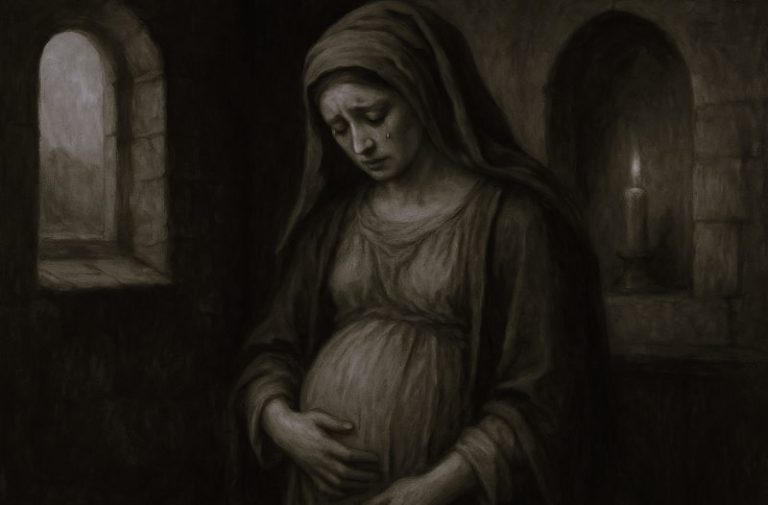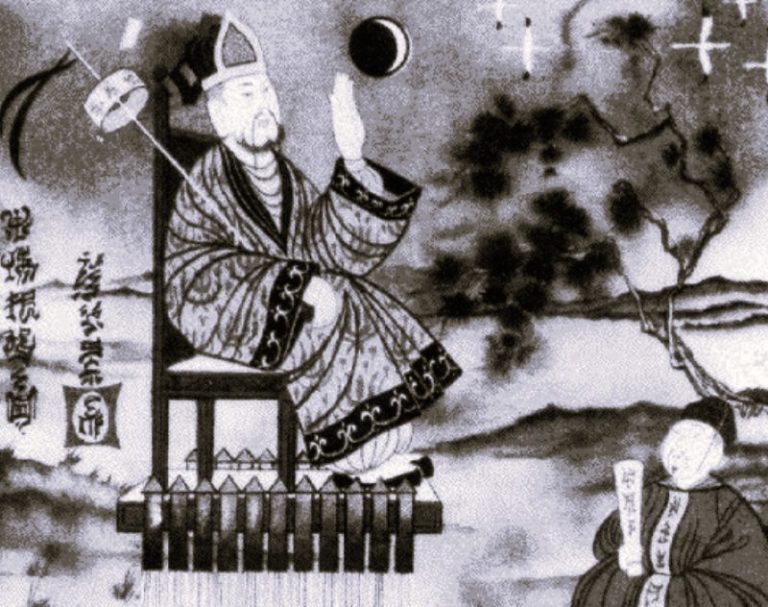

Socrates said that law was a discovery of the reality in relations – that is, of the ideally significant.

Lecture by Dr. Nathan Roscoe Pound / 04.04.1940
Dean of Harvard Law School, 1916-1936
Law is a word of many meanings. In the sense in which I shall be using it, in the sense of law with which lawyers are concerned, it has no less than three meanings. One sense is what may be called the legal order, the regime of adjusting relations and ordering conduct through the systematic and orderly application of the force of politically organized society.A second sense is the one in which the term has been commonly understood by lawyers since the study of Roman law in the twelfth-century universities, namely, the body of authoritative grounds of judicial and administrative determination by which judges and administrative officials are held bound to exercise their office. A third is what Mr.Justice Cardozo happily called the judicial process, to which we must now add the administrative process, that is, the process of objectively maintaining the legal order through decisions and determinations reached by applying an authoritative technique to the authoritative grounds of decision.But what, as men have thought in the past, has entitled each of these three meanings to acquire and keep the name of law is an ideal behind each of them-an ideal of something firm and constant and stable to which human behavior is to be molded as a check on the primitive behavior tendencies that make for unbridled individual self-assertion; a picture of a reasoned adjustment to the human environment of the individual, making possible division of labor and so leaving men free for research and experiment and invention and all that underlies our economic order and mechanical development.Today this element, which I made prominent in defining each of the three meanings of law, is challenged by a group of self-styled advanced thinkers in all parts of the world, but especially active in America. They raise a question as to the legal order, asking, is it a systematic and orderly adjusting of relations by politically organized society or is it just an ordering by the force of such a society, the quality of which is irrelevant? And they answer their question by saying that it is a process of ordering society. When we think, as we used to, that this process may be carried on according to law or against law or without law, we are told that we are bringing in irrelevant and unscientific notions. In like manner,they raise a question as to the authoritative guides to determination.For centuries men have regarded them as reasoned expressions of an idea of justice. They ask whether we have anything more than arbitrarily made rules imposed by those who wield the force of politically organized society. In this way of thinking law is an aggregate of laws, and a law is a threat of application of state force. Similarly as to the third meaning, they question whether it is an objective process of applying an authoritative technique and urge that it is no more than a process of determination on the basis of the personal class self-interest or temperament or prejudices of the magistrate.

One might suppose that the spectacle of the process of ordering society carried on in more than one part of the world today as something dependent on the will of one man might enable these self-styled advanced thinkers to compare it with the legal order, the body of guides to decision, and the judicial process in the English-speaking world and ask themselves whether perhaps their advanced thought may have been advancing backwards. At any rate, the questions which they ask are not at all new. They were raised by Greek philosophers as far back as the fifth century B.C. They argued, as we are doing today, whether men’s relations with each other were adjusted, their disputes were determined,and their claims and desires were harmonized in action by arbitrary precepts, arbitrarily applied by those who wielded political power in the time and place, or rather by precepts of general application grounded on reason and justice. Democritus, a precursor of Epicurus and so of materialism, held that law was something made, in contrast with what exists by nature. It was a stock doctrine of the Sophists that the just was such only by convention and enactment. Antisthenes, the founder of the Cynics, laid down that all laws got their sole validity from enactment. There was no ideal behind a legal precept which it sought to express and declare.What men had taken to be behind it was a result of the existence of the precept by custom or enactment. Socrates, on the other hand, said that law was a discovery of the reality in relations-that is, of the ideally significant. It was found,not made. In one form or another, jurists have carried on this debate ever since.
In this country, under the influence of Marx’s economic interpretation, the Sophists’ way of thinking has been revived in a new form for the modern world, though one familiar to the Greeks. We are told that justice is no more than the will of the socially dominant class, dictated by itsself-interest, imposed on those on whom it is able to impose its authority. The legal order is a regime of subjecting an economically subject class to the will of a socially and economically ruling class. Law in the second sense is a body of precepts formulating this will. The judicial process is a process of determining controversies so as to maintain the self-interest of the dominant class and nothing more. Hence,one of the leaders among American self-styled realists tells us that law is whatever is done officially. It is what judges and magistrates and administrative officials of every sort do about men’s disputes and is law because they do it. One of the leaders among the realists in Europe tells us that it is not that there is a law of property because men seek to be secure in what they have discovered or made or amassed. They claim to be secure in those acquisitions because there is a law of property. It is not that there is law because men make just claims and just men seek to secure them in those claims.Men make claims and desire them secured because the law teaches them to do so. The idea of right or a right is wholly rejected. There are only “situations in which, on account of certain rules maintained by force, certain acts give rise to certain effects.” As the official exponent of Marx, lately adviser to the Soviet government, put it, in the ideal society there will be no law, or rather but one rule of law, namely,that there are no laws but only administrative ordinances and orders. Thus the process which our American advanced thinkers call law, the Russian advanced thinker of yesterday had advanced to see as a doing away with law.
Judges and administrative officials are likely to do what they think they are doing. No one does better than he tries to do. Whether we think of a systematic and predictable social control or only of a regime of ordering society by force;whether we think of authoritative formulations of what is believed to be right and just, or only of threats of applying state force; whether we think of objective application of a technique of decision, or only of the behavior of a particular judge or official determined only by his individual psychology and environment-this, as the English-speaking world has thought since the seventeenth century, determines whether we live under law or under men. From the Middle Ages the Englishman has rejected a social control depending on the personality of an individual and has stood for one made to the pattern of a constant and regular order of nature, operating on principles, and a moral order equally constant and regular and rational, made to a pattern of an Eternal not ourselves who makes for righteousness.
It is of the relation of religion to law so conceived that I am to speak to you. If law is something different, if it is no more than what officials do because they have the power to do it and so do it, we must be looking to Marxian political economics and Freudian psychology rather than to religion.

Two great systems of law have ruled since the later Middle Ages, the civil law or modern Roman law, and the common law or legal system of England and by derivation of the English-speaking lands. In each of these there is a conspicuous debt to religion in their formative eras in the Middle Ages. In the common law there is another conspicuous debt in the era of the Puritan Revolution, the era when the supremacy of the law was firmly established, the era in which the fundamental doctrines of what became American public law were fixed in the struggle between the common-law courts and the crown.
Tonight I speak of the medieval church and the law.
Four leading ideas which guided the development of the two legal systems of the modern world took form and impressed themselves upon those systems under the influence of the church. They may be called the idea of universality,the idea of authority, the idea of good faith, and the idea of law behind and above laws.
From the twelfth century, when the study of Justinian’slaw books in the Italian universities began the tradition of the modern Roman law and when the first treatise on English law was written, down to the rise of nationalism after the Reformation, the church stood steadfastly for the idea of a universal law governing all Christendom. Indeed, the idea of universality pervaded every medieval institution and activity.Men believed in a universal church and the universities taught a doctrine of a universal empire, each embracing all Christian lands and taking in all Christian people.There was a universal language for all official action. There was universal scholarship, promoted by universities to which students came from every land. There were universal ethical precepts and ethical customs of chivalry, and we are told how knights came from many countries to take part in tournaments and passed freely from land to land, thought of as Christians rather than as subjects of any particular sovereign.The knight, the scholar, and the merchant were, if we put the matter in the secular political mode of speech of today, citizens of Christendom. In the sixteenth century the division of Christendom into sects, the rise of strong central governments and growth of nationalism, and the rise of individualism upon the breakdown of the relationally organized medieval society, led to a decay of universal thought and universal institutions, But the idea had intrinsic vigor. It survived the era of nationalism and individualism, and notwithstanding the recrudescence of nationalism in the last twenty-five years, the idea of universality has been gaining in strength in an economically unified world in which men are coming once more to think of relations and associations. It is reestablishing itself as we come to value community interests as well as individual personality interests and to weigh both in terms of a universal idea of civilization. We turn to it as we seek to achieve human purposes through cooperation instead of solely through competitive self-assertion.The idea of universality is the antidote to extravagant nationalism, as it was to the extravagant localism of the earlier Middle Ages.
In medieval politics and law there was a fundamental distinction between the spiritual jurisdiction of the church,that is, of religiously organized Christendom, and the temporal jurisdiction of the state, that is, of a particular politically organized society. Each had its own province in which it was paramount. A higher fundamental law kept each to its own domain. Hence when before the Reformation Parliament sought to make the King an ecclesiastical person,the English Court of Common Pleas in 1506 refused to give effect to the statute. When Parliament, supreme in matters temporal, sought to act in matters spiritual, its acts were of no force-as the older cases put it, they were “impertinent to be observed.”

After the Reformation, with the separation of church and state, the idea of a spiritual jurisdiction over everyday affairs gave way and politically organized society became the paramount agency of social control. But the underlying idea of fundamental limitations upon political action survived and had important consequences in the New World.
How the idea of a universal law of a universal church affected the law of politically organized society and gave a stamp to doctrines and institutions which has endured ever since, is best illustrated by the law of marriage.
In the Christian polity marriage was a matter for the church, not for the state. In the twelfth century the church made good its claim that marriage was in the cognizance of the church courts, not of the lay courts. But the church had not been required to have a legal theory of marriage. When one was called for in the general development of law in and after the twelfth century, obviously it had to be cosmopolitan and universal. Accordingly, the academic teachers of church law adopted from the Roman law, regarded as a universal system for Christendom, the idea that no form was required and that the substance of a marriage was present consent consent“by words of the present”-to be husband and wife.Upon consummation by living together as such the marriage was complete. To this simple universal doctrine, adapted to all Christendom, the Roman Catholic church after the Reformation added a requirement of the presence of a priest,while Protestant countries, and after the French Revolution,Latin countries, added alternatives or requirements of civil marriage before a magistrate. These additions and changes took place in the era of nationalism and so differ widely indifferent countries and jurisdictions. But the universal doctrine of the twelfth century law of the church has maintained itself everywhere as the basis of the law on this subject.
At the same time the canonists, or lawyers of the church,working on the same simple universal lines upon the texts of Scripture, and a few texts of the fathers of the church,developed another doctrine which has likewise endured,namely, the modern idea of marriage as a status, that is, as a condition which cannot be terminated by the act of the parties but only by nature or by the law.
Status means a condition or position before the law of which one cannot divest himself by his own act. Only the operation of time or of nature or the act of the law or of some other person can bring it to an end. For example, the minor must come of age, the alien must be made a citizen by law,the slave must be set free by his master. In the maturity of Roman law marriage did not create such a status. The relation might be terminated by mutual consent or by repudiation of it by either party. The modern law throughout the Christian world is very different. It is based on the law of the church and followed from the theory of the canonists as to the indissolubility of a consummated marriage. After the Reformation, Protestant countries began to allow divorce.But the doctrine had become established that marriage created a status which could only be terminated by nature or by the law. Hence the modern world (except present-day Russia) has not gone back to the free marriage of the maturity of Roman law. The universal conception of the church law has endured, although the local divorce laws of today show every conceivable variation of procedure and of substantive grounds. The contrast suffices to indicate something of the part which the ideal of a universal law of a universal church has played in shaping the law of today. The resulting legal theory of marriage seems to be as stable and enduring as that of divorce is unstable and unsatisfactory.

Again, the ideal of universality, the ideal of law developed in the universities with theological premises and the doctrine of the church behind it, led to an academic teaching of one law which enabled the law in each locality to develop rapidly and yet assuredly by availing itself of the best of juristic activity everywhere. The juristic thought of any part of Christendom was available in every other part. Students from every land went to the great universities of the time and came back with a fund of ideas of justice according to law transcending the local customs and institutions of the feudal jurisdictions of the time. How this operated to create law instead of multiplying laws is brought out in the subject of what we call conflict of laws. When each feudal jurisdiction had its own peculiar local customary law and each Italian city-state its own local statutes, with the growth of commerce and business enterprise questions arose continually as to what law governed a particular transaction or situation as between the different local customs or local statutes where some of the parties lived or some part of the transaction took place or something was to be performed,Clearly a workable solution had to be on universal lines,It had to be one which would be accepted in all the jurisdictions concerned. The universal idea was therefore exceptionally well fitted to be the background of a solution. The medieval academic jurists drew a theory so well on simple lines generally acceptable, that the law throughout Christendom has kept to those lines ever since. That the conflict of laws, continually more in evidence in an era of nationalism and aggravated by the idea of law as whatever is done officially in the particular time and place-that this conflict of laws is not a conflict of law is due chiefly to the universal ideal taught to medieval lawyers by the church. The universal principles of Christian conduct, backed by the authority of the local political organization, was the idea which made possible the two great systems of law by which civilization is maintained and furthered in the world today.
A universal law of marriage and a universal doctrine as to the conflict of laws are by no means all that the Christian idea of universality did for modern law. In the Middle Ages, the sea law and the law merchant were thought of as bodies of universal law like the Roman law and the canon law. The church insisted on good faith in transactions and furthered movements for uniformity in customs of trade and commerce.It came to be assumed as a matter of course that commercial law must be as universal as commerce. In spite of the rise of nationalism and resulting cult of local laws,admiralty and the law merchant have kept much of the universality which was impressed upon them through the medieval universities in which the law of the church and the lay law were taught side by side on a common background of Christian theology.
A second idea which the law of the modern world owes to the church is the idea of reasoned development and application of authority. In the chaos and anarchy of the earlier Middle Ages the church alone made for stability and security.In the Anglo-Saxon laws the King does not command his people as subjects. He exhorts them as Christians to keep the peace, While the Roman empire was still developing in strength the church was a growing force for social control.As the empire decayed, the church more and more took over the work of its legal order in adjusting human relations and guiding human conduct. When the Roman empire in the west fell and no general political organization of society took its place, the church remained more and more carrying on the fundamental task of civilized society, the orderly securing of competing interests and claims and demands of individuals so as to satisfy them as far as may be with a minimum of friction and waste.
Christians had been taught not to go to law with each other and so avoided the courts of the state and went instead to the overseer or bishop of the local flock. Gradually they developed what became a system of law depending for its enforcement upon excommunication. By 500 A.D., a generation before the codification of Roman law by Justinian in the east, there was a book collecting the canons or precepts of church law promulgated by the councils of the church.There was another such collection in the seventh century and another containing much apocryphal material in the ninth.We must remember that local feudal tribunals were administering a local customary law. Roman law was known only in abridgments of abridgments. There were no effective organs of legislation for politically organized society. At the end of the ninth century Alfred, compiling the customs of his kingdom, told his people that he “durst not set down much”of his own. The time of conscious constructive lawmaking by lay lawmakers was far in the future.

Thus it was the church that made for universality and so for the uniformity and predictability in adjusting relations and ordering conduct demanded by the economic order in a civilized society. It made for these things by enjoining and enforcing courses of conduct called for by Christian morality.As the social order grew in complexity and questions of detail as to relations and items of conduct multiplied, there began to be manuals of church law. These are known as far back as the tenth century. In the twelfth century Gratian compiled the canons and other materials in what became the foundation of the body of the canon law. It was studied and commented on in the universities and was followed by collections of the decisions and legislation of the later Popes and so grew into an elaborate body of law, not complete until the beginning of the fourteenth century. We need to remember that the canon law was mature as a modern system on many points of the law governing the relations of man with man long before the modern Roman law and very much longer before the English common law had reached alike development.
For a thousand years from the breakdown of the Roman Empire in the west to the Reformation, men valued their relation to the spiritual. For nearly four hundred years after the Reformation they valued liberty, giving it a spiritual value. Law was to secure liberty. Constitutions were to be guarantees of liberties, not merely frames of government.A new idea, to compete with the idea of liberty,begins with Marx, about the middle of the nineteenth century,when he interpreted history as the record of the progressive unfolding or realizing of the idea of a maximum satisfaction of material human wants. The relation of man to the spiritual has no place in this conception of life. Likewise liberty, which interferes with a maximum efficiency of satisfying material wants, can find no place. Hence fashions of thought of today, deriving directly or indirectly from Marx, are scornful of the ideas which had given continuity to social and legal development from the time when order began to arise from the wreck of the empire in the west.But behind those ideas, if we look at them from an earthly standpoint only, is the idea of civilization, the idea of raising human powers to their highest possible unfolding, the idea of the maximum of human control over external nature and over internal nature, which has enabled mankind to inherit the earth and to maintain and increase that inheritance.
Control over external nature, which has made such strides in the immediate past and of which we make so much today,rests upon the control over internal nature which has made it possible for men to set themselves to the task of harnessing physical forces to their use. Behind this control over human nature is social control, and for ages that has been chiefly control through law. What then is behind law? Men began to think about such things again in the twelfth century, after philosophy had been long in abeyance. In the beginnings of law in the modern world the church taught, and lawyers learned from the church and have since assumed, that what lay behind law in all of its senses was authority. Law must rest on some ultimate unchallengeable authority above the reach of the arbitrary will or caprice of any man or set of men.
In the Middle Ages there were taken to be three bases of authority: the Bible and the writings of the fathers of the church, the legislation of Justinian, the Christian lawgiver,and Aristotle, or at least the logical philosophical method derived from him. These were to be interpreted and applied but not questioned. For the universal canon law the Bible was the ultimate authority. For the universal civil law Justinian provided the authoritative materials. For both Aristotle provided the authoritative technique of interpreting and applying them. The scholastic philosophy, the philosophy of the medieval church, gave to both the canon law and the civil law organization, and definition to the ideal of authority, and thus enabled jurists to go forward with confidence in the development of the received legal materials.
Following a period of anarchy and disunion and violence,men sought order and organization and peace. They sought a philosophy which would bolster up authority and put in rational form the need of imposing a legal yoke upon individuals and of keeping down anti-social activities. Scholastic philosophy, with its reliance on dialectical development of authoritatively given premises, its faith in formal logic,and its central problem of putting reason as a foundation under authority, responded well to these demands. It was the theological philosophy of the church which enabled the commentators of the fourteenth and fifteenth centuries to put the Roman law of Justinian in a form to be received and administered in the Europe of seven centuries later. It was in the form acquired during this period, and chiefly in the form of the commentaries of Bartolus, that Roman law spread over Europe from the fourteenth to the sixteenth century.The commentators used the ideal of authority to make law out of the only materials at hand which could claim some universal validity. Thus the ideas of universality and of authority were behind the establishing of what is now the legal system of more than half of the world.

But there was other work for the idea of authority to do,and it achieved the task through the theologian philosophers of the later Middle Ages. Reason was appealed to in order to sustain authority. The thirteenth and fourteenth-century philosophers of the church had to demonstrate the basis of authority of man-made laws, and the basis, as men then thought, had to be one of unchallengeable authority. They had to reconcile, if they could, the ideal of the King or the state ruling by and under the law with the ideal of a universal law of the universal empire enacted by a Christian Roman emperor. The philosophers’ solution of the apparent contradiction between the ideal of law as the ascertained and declared justice and truth of the Creator, and the ideal of law as the enactment of a Roman emperor was a theory of eternal law, the reason of the divine wisdom governing the universe, and of a natural law, proceeding ultimately from God, but immediately from human reason and governing the actions of men only. The positive law, the enacted law promulgated by sovereigns, was a mere recognition and declaration of the natural law which was above all human authority. When, however, we have positive law so established,we have something authoritative, something which we can postulate as of final authority, the content of which we can develop analytically and by logical unfolding. The method of postulating an authoritative text and interpreting it, as the medieval lawyers worked it out as a received ideal on the analogy of authoritative interpretation of the Bible, has endured as part of the legal equipment of the modern world. The Middle Ages left as a permanent contribution to the science of law the method of insuring certainty and stability by logical development of the content of authoritatively established precepts. We owe this method, the oldest, most generally used, and most effective instrument in the lawyer’s tool box to the jurist theologians, and theologian philosophers of the church, working side by side with the lawyers who as doctors of the civil as well as the canon law shaped the formative modern Roman law.
A third great idea which modern law received from the medieval church is the idea of good faith. In a developed economic order men must be able to assume that those with whom they deal in the ordinary intercourse of society will act in good faith and so will make good the reasonable expectations created by their promises or other conduct. It is along time, however, before the legal order gives much security to this assumption. The first function of the law is to keep the peace and a long struggle between kin organization and political organization keeps the law confined to a relatively narrow field of social control in the earlier stages of its development. After the state has become the paramount agency of social control, and the law has developed as a specialized form of social control through the force of politically organized society, the law moves slowly in the field of enforcing promises, which had been left to religion and the pressure of public opinion. Roman law in its classical period was very far from enforcing promises simply as such. In the course of centuries the sphere of enforceable agreements and promises had widened without any idea of a general enforcement of them. Forms had relaxed and informal categories had been added, but when Justinian codified the law in the sixth century there was still no general principle that promises were to be kept. Indeed, the Roman law handed down two ideas which have embarrassed the law and thought about the law ever since. One is an idea that there are and ought to be possible and permissible promises and agreements intentionally made with an expectation of performance which are not recognized by law. Another is an idea that there must be some reason for legal enforcement of promises and agreements other than the making of them and the reasonable expectation they create.
On the fall of the western empire there was a long interval of retrogression in the adjustment of relations and regulation of conduct by politically organized society. The law of the Germanic peoples who had invaded western Europe knew only of primitive types of contract derived from the custom of giving hostages or pledging oneself as a hostage for the keeping of a promise. The Christian went to the Bishop, and the Bishop enforced, not the legal duties enjoined by the Roman law, but the moral duties incumbent upon Christians.For centuries the Bishops and the church courts were the effective agencies of upholding civilization through social control of relations and of conduct. Performance of promises and agreements was exacted of the Christian by the church courts on the basis of Christian morals without regard to form, and without looking to the legal reasons for enforcement in the categories of enforceable contract in the Roman law. A council of Carthage in the fourth century laid down that agreements, even bare agreements not recognized by the civil law, were none the less to be observed. Gregory the Great(A.D. 600) laid down that the judge should bestir himself vigorously to see to it that promises be performed. In the thirteenth century, when the Decretals of Gregory IX were repeating these pronouncements, the customary law of the time called for forms or special reasons for enforcement. In contrast, the law of the church started with the proposition,denied by the Roman law, that obligation arose simply from consent. In the eyes of the church the man who did not keep his promise committed a sin. He incurred ecclesiastical penalties.All forms, in the view of the church law, were superfluous.The only condition of validity was that the purpose of making it should be lawful and moral. While the modern Roman law, developing in the universities, was still in a stage of strict law and ignored the moral aspects of transactions and situations; while the narrow ideas of the Geimanic lawas to enforceable agreements were still adhered to in the lay tribunals, and the lay law was seeking certainty through rule and form, the church held it not so important that rules be certain as that men’s conduct be certain and were enforcing moral duties of good faith as legal duties.
In the modern Roman law, under the influence of the law of the church, reason for making a promise became reason for enforcing it. Intent to incur an obligation was a reason for making it and so a reason for enforcing it. The extension of the idea of good faith over the whole domain of legal transactions,which sets off the modern Roman law from the Roman law of antiquity, is due not to a straight-line evolution from the Roman texts but to the influence of the church, contact with the canon law, and the identification of the legal with the moral and consequent stress upon good faith in the doctrine of natural law.

In the canon law the pressure of the church was brought to bear upon a promisor to compel him to keep his word.Ecclesiastical censures, penances, and in grave cases an ultimate excommunication coerced a specific performance of what he had promised unless in some particular case exact performance in kind had become impracticable or would operate inequitably. It was otherwise in the Roman law.The Romans held that every obligation must have a pecuniary value. It was enforced normally by a judgment for that value. Here, again, the idea of the church has prevailed.In the modern Roman law, unless there are reasons to the contrary, the promisor must perform as good faith dictates.
In Anglo-American common law we have not progressed so far, The reason seems to be that in England there was less contact with and influence of the law of the church. In 1164, in the compromise between Henry II and the church called the Constitutions of Clarendon, it is provided that“pleas concerning debts shall be in the jurisdiction of the King irrespective of whether they were accompanied by a pledge of faith or not.” English law was taught and lawyers and future judges were trained in the professional societies of lawyers, the Inns of Court; not in the universities as on the Continent. Thus the contact of church law and lay law which was so close where civil law and canon law were taught and commented on by the same teachers or by teachers side by side in the universities was wanting in England. The significant development of our common law begins in the thirteenth century. The common law as to contracts had been cut off from influence of the church law a century before.
But while the church had no influence to speak of upon the common law of contract, it had a decisive and salutary influence in giving us, through the Court of Chancery, a category of fiduciary obligations, arising from relations of trust and confidence, in which duties of good faith are maintained and enforced to the utmost and specific enforcement of what the moral duty calls for is the rule. The clerical chancellors enforced duties of good faith against fiduciaries because, as a clerical chancellor put it in the reign of Henry VII, “every law is or ought to be according to the law of God.” A great department of our modern law in the English-speaking world has been built upon this foundation.
A fourth great idea which the law owes to the medieval church is that of a fundamental ideal law, usually spoken of as natural law. The teachers of the civil law in twelfth-century Italy repeated for a time the first stage in the development of law by lawyers in working out rules by drawing distinctions between texts and formulating principles behind the distinctions and reducing the principles to maxims. Long before this the church had been insisting upon something more than rules. It had been urging moral principles and moral conceptions, and building a body of law by means of them. Most of all, however, the lawyers of the church and the theologian philosophers of the church took over from the Roman law the idea of natural law-the conception of an ideal law fundamental for all social control by politically organized society-and made of it the chief instrument of creative lawmaking and the great liberalizing agency in law for the modern world.
In the teaching of the fathers of the church, while the authority of the ruler was sacred, it was the task of the ruler to uphold justice and righteousness and hence one was not truly a ruler unless he governed his people righteously and with equity. This theological political doctrine was well-developed in medieval political thought by the ninth century.Later it becomes important as a legal doctrine. In both aspects it has played an important rule in shaping the law under which we live.

As a theory of a fundamental higher law limiting the action of rulers and ruling authorities of every description and requiring them in medieval phrase to rule under God and the law, it has given direction to the development of public law in the English-speaking world and has been a controlling force in our American constitutional law. As a theory of an ideal body of principles discoverable by reason to which lawmaking and the interpretation and application of legal precepts ought to conform it has been a force for liberalization of the legal system in two eras of growth, the development of equity and absorption of the law merchant in seventeenth and eighteenth-century England and the making over of the received English law in nineteenth-century America.
In the sixteenth century there were jurists who sought to divorce from theology and religion the ideal law, the body of rationally discovered principles to which law and lawmaking ought to conform. In the nineteenth century there were those who ought to divorce law from the ideal and make it rest wholly upon the force of politically organized society, or of those who exercise its powers. In the present century there are those who seek to divorce the adjustment of relations and ordering of conduct from law and leave only a regime of force applied to each case as it arises and acting without ideal objective or reasoned guides to decision. To them law is a disappearing phenomenon. One of them,indeed, considers it only a superstition. Even among those who do not go to the extreme and reject law as meaning anything other than what is actually done officially in adjusting relations in some particular time and place, the ideas which came into the law from the medieval church are under attack. Nationalism has buffeted mightily against the idea of universality. Impatient reformers have heavily bombarded the idea of authority. The analytical jurist who can only see law as an aggregate of laws and thinks of a law as a threat of definite detailed constraint by those who wield the force of politically organized society, attached to a pronouncement as to a definite detailed state of facts, rejects the idea of good faith and all standards containing a moral element coming down from a loose-thinking, superstitious past. The skeptical realist sees in natural law a superstition piled on another superstition, hardly worth the trouble of combating it. Thus the ideas handed down to modern law by the medieval church are all under violent attack. But so is the law itself; and in the land where the disappearance of law has been preached most zealously, so is religion and all its works.
Originally published by Rice Institutional Pamphlet – Rice University Studies 27:2 (1940, 109-129), released by the Rice Digital Scholarship Archive under the terms of a Creative Commons Attribution-NonCommercial 4.0 International license.






